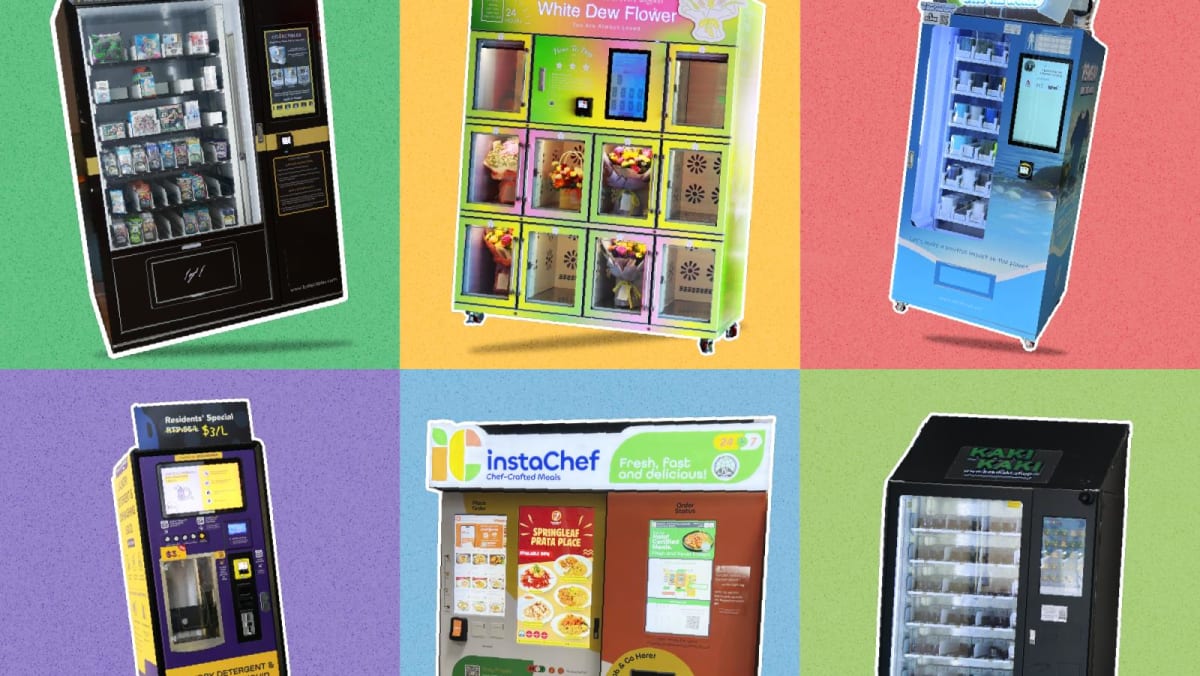What’s behind the increasing ubiquity of these automated machines and will this trend last?
LOWER COSTS, HIGHER GAINS
For brands such as Kaki Kaki, a Singapore durian seller that operates seven durian vending machines here, these machines offer a compelling alternative to traditional brick-and-mortar stalls because the price of rent is “significantly” more affordable.
“Singapore is quite a unique place, where even a clinic can pay S$52,000 in rent,” its representative told CNA TODAY. “I can’t sell S$52,000 worth of durians in a month.”
He was referring to the price that a healthcare firm bid for a shop space in a Tampines public housing estate earlier this month.
In contrast, the monthly cost of renting the far smaller space needed for a vending machine can range anywhere from S$300 to S$800 in shopping centres, and between S$600 and S$1,100 at bus and train stations, some operators said.
“At the end of the day, it’s about how we lower the cost and provide the same kind of quality and convenience,” the representative from Kaki Kaki said.
“The more we save, the more we are able to purchase better quality durians and pass on the savings to the consumer.”
Businesses that spoke to CNA TODAY declined to share specific figures, but most reported that demand for their vending machine products has been good.
Ms Magdalene Lim, country head for acne-care brand Dododots Singapore, said its vending machines that sell coloured hydrocolloid pimple patches typically turn a profit after three to six months.
“It provides our customers with a more convenient and instant way to get our products, while being able to save on costs involved like renovation, interior design and manpower,” she added.
OPENNESS OF CONSUMERS, LANDLORDS
At the same time, vending machine operators noted that landlords were increasingly open to leasing space to them – a trend perhaps exemplified by Kaki Kaki’s durian vending machine obtaining permission to operate at Tampines MRT Station.
Online users were initially intrigued, considering commuters are not allowed to take durians into carriages. Kaki Kaki said that its landlord, which is public transport operator SMRT, was very supportive of the idea.
Mr Justin Cai, an entrepreneur who tried his hand at running a fresh orange-juice vending machine back in 2018, said that setting up a vending machine operation was not that easy just a few years ago.
“As a small company, it was very difficult to get into malls and ask them for space. They felt we would be fighting (for business) against their existing fruit stalls and end up with a lose-lose situation.
“Even the malls that agreed would offer certain rental rates that are just not viable for a vending machine business,” he added.
Mr Vernon Tan, director of full-service vending operator Allied Vending, said shopping centres typically have two considerations when it comes to being receptive to vending machines: price and optics.
“If people are willing to pay more (for rent), I think they’re more open,” Mr Tan added.
“Space owners right now would also be more ready to think of where they can park machines and place them in aesthetically pleasing areas, whereas before, it was more of an afterthought.”
